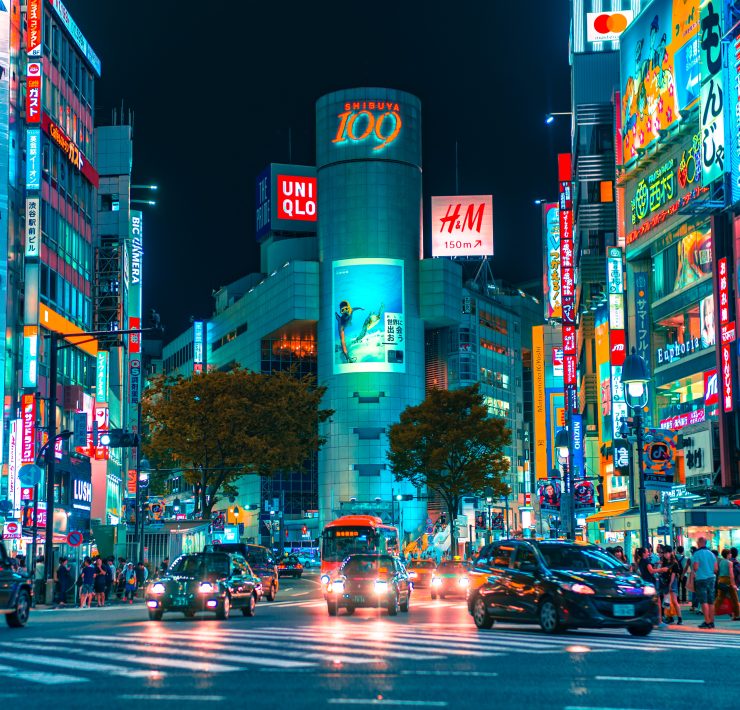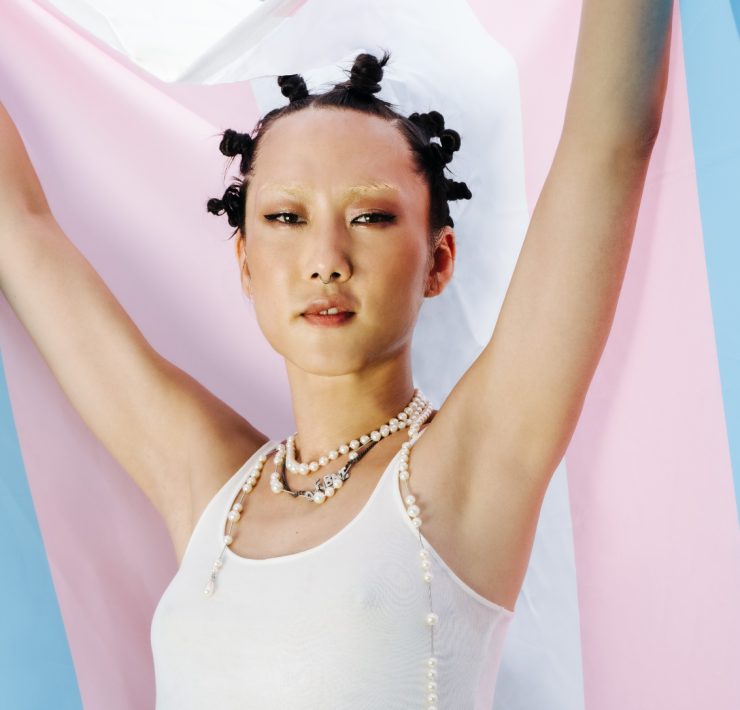Tegan and Sara are Changing Lives with LOVELOUD
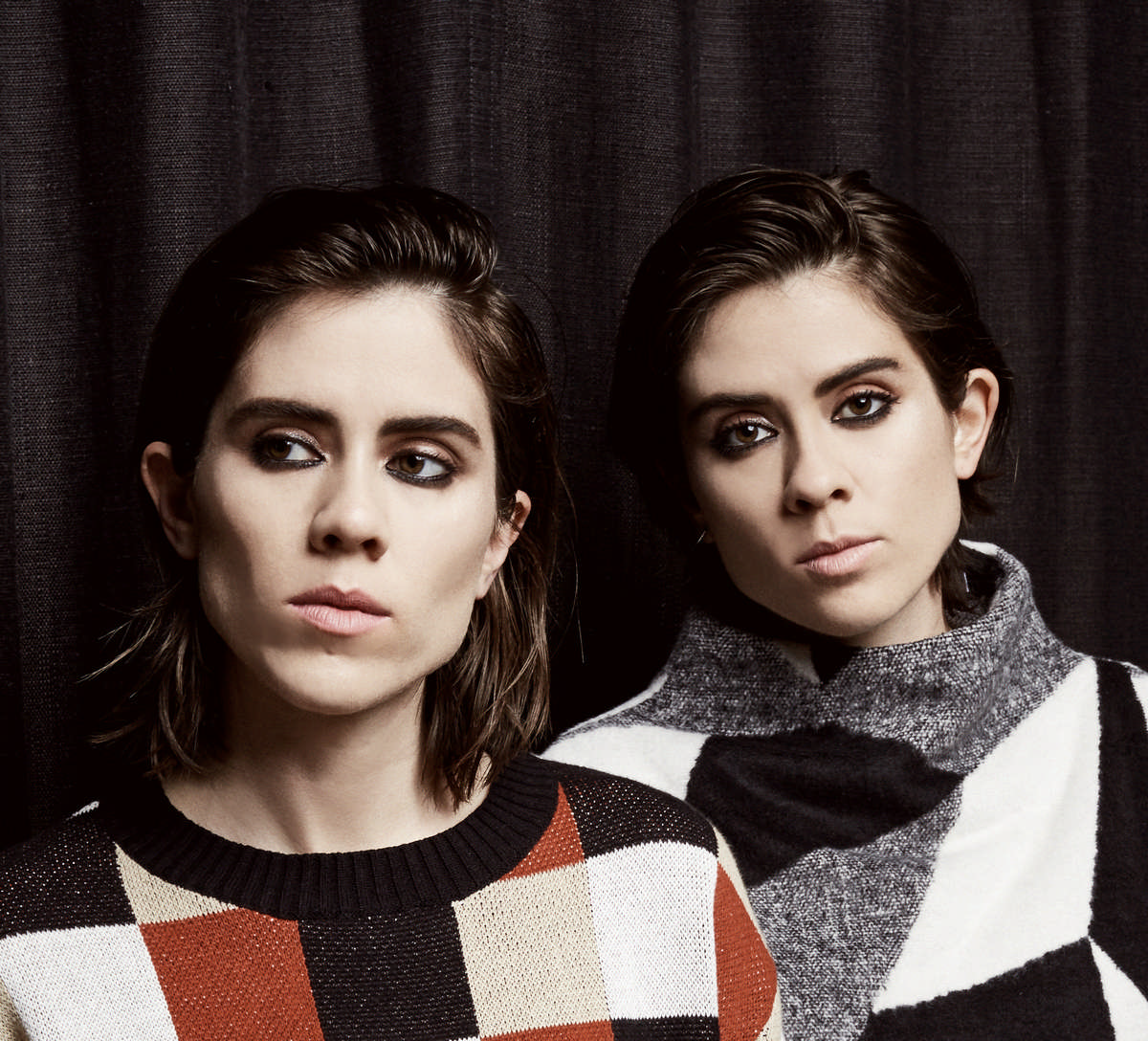
Intersectionality, accessibility, and squashing the sexist, patriarchal norms through queer…
Developing a queer-owned and operated nonprofit for LGBTQ youth is difficult; building a creative and lucrative career in the entertainment industry is near impossible, and coelescing the two spheres is simply unheard of. For Tegan and Sara, visibility for queer women is more than simply a band mission; it’s a driving force of their personas. With a continuous wading through an industry of misogynistic and homophobic notoriety, the two have resurfaced with a new mission of synergy, representation, and advocacy for LGBTQ self-identified women and girls unlike anything before.
Tegan and Sara, the twin sister pop duo originally stemming from the Canadian town of Calgary, have worn a variety of professional hats since their entrance into the music scene in the 90s. Creative Jills-of-all-trades, the two are preparing for the release of their ninth full-length studio album, dropping their first memoir about their high school years, and the inevitable national and international tours that are sure to follow. As their career has now reached a span of more than two decades, the sisters are no strangers to arbitrary lists of female-hyphened adjectives that restrict them to fictionalized genres, like “female-fronted” and “lesbian-rock.”
Many people know Tegan and Sara by sight, as the identical sisters have graced magazine covers, starred in music videos that have reached millions, and repped guest spots on shows like The L Word. Even more know the band by sound, with radio hits like “Closer,” “Back In Your Head,” and “Walking With A Ghost.” The band has been nominated for a Grammy Award, won multiple Juno Awards, and performed on the stages of festivals like Coachella and Lollapalooza. With their ever-evolving music, from folk-indie during their early 2000s beginning with This Business of Art, to indie-rock in The Con era in 2007, to full-on pop stars with the release of Love You To Death in 2016, they have steadily grown their loyal following to reach an international scope.
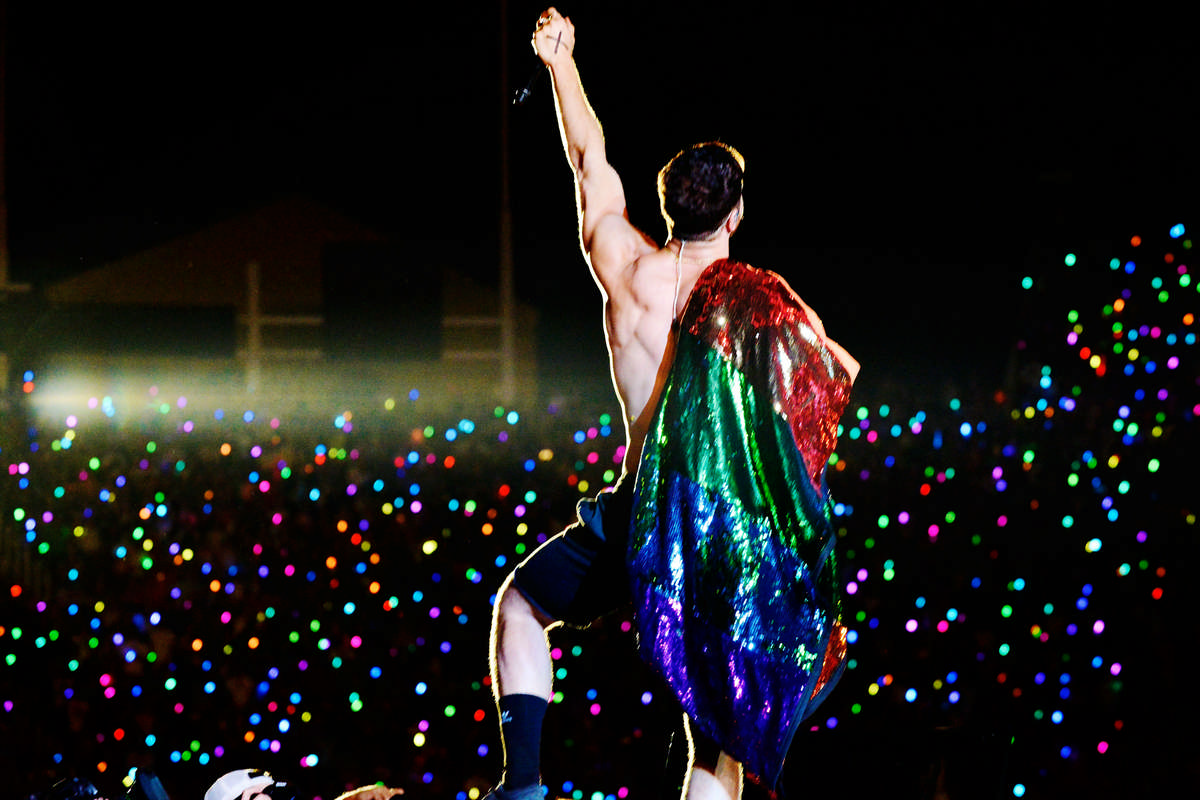
However, few people know the sisters as co-workers, steadfast entrepreneurs, activists, and radically queer. Two people on a path of LGBTQ, feminist, racial, and social justice. On the verge of something revolutionary, Tegan and Sara are utilizing their platform and power to help eliminate the gap between queer, female-identifying folks and the access to the vital healthcare that they need.
“Sara and I recognized a handful of years ago, on the heels of our most successful record, that we had more access and more power, and we needed to use that while people were paying attention” said Tegan Quin.
As one half of the duo, she explained that while she and Sara toured North America after the release of Love You To Death, they came to realize a disconnect between their perception of progress for LGBTQ folks and the reality of many who were still struggling.
Since the beginning of their career, Tegan and Sara have been forthcoming about the fact that they are both queer, and often find themselves behind a mic talking about issues of gender inequality and LGBTQ injustice. As they faced frequent homophobic discrimination and misogynist belittlement, they relentlessly grew their activist voices, becoming comfortably outspoken. So, in 2016, while the current state of LGBTQ and gender issues were not perfect, society was improving and earnestly seeking queer inclusivity and acceptance. Or was it?
“We would meet young LGBTQ people and be like, ‘Things are changing! Marriage equality, right!?’ And they’re like, ‘Well, it’s not really changing for me. I live in rural Alabama, or I’m in the military and have to keep my relationship a secret, or my parents kicked me out.’ Their stories were not necessarily mine, and I realized that I was conflating my success and acceptance within the music industry as something that they were also experiencing,” said Tegan.
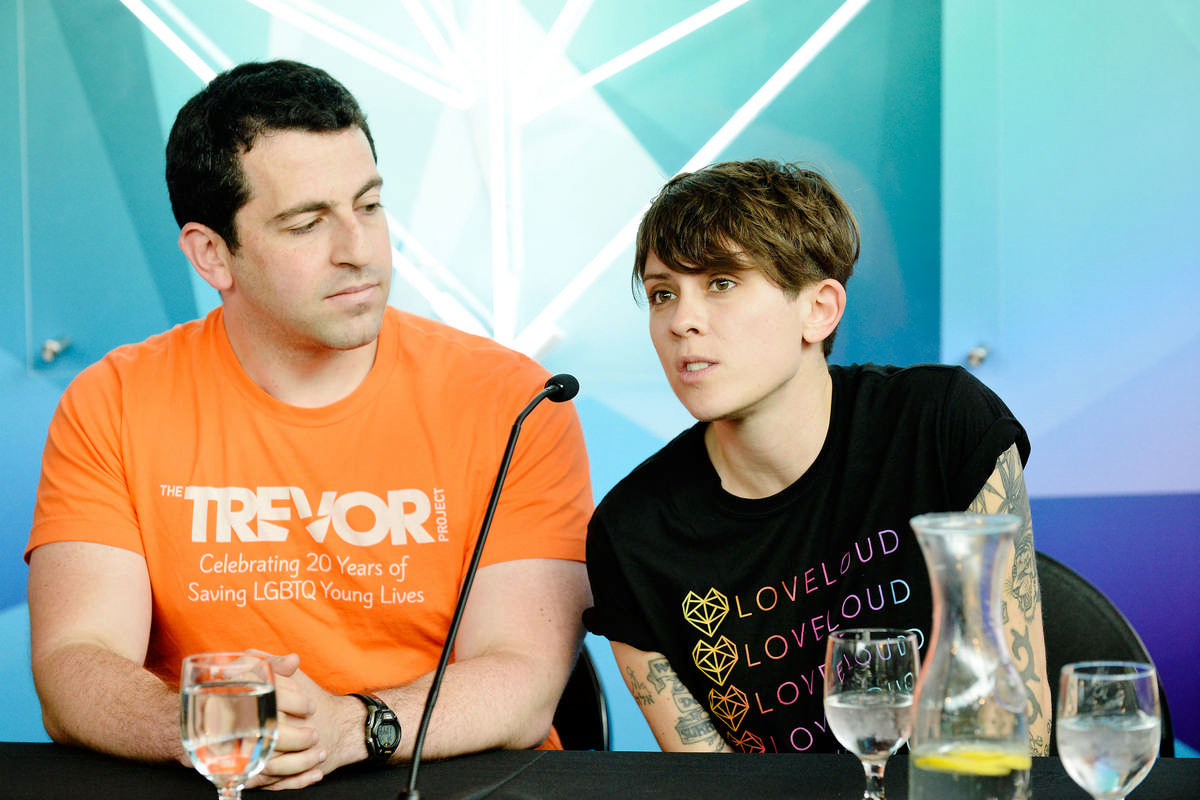
Through these conversations, the two came to the conclusion that they could not rest on the laurels of personal success; they needed to invest their resources into seeking equal justice for those who couldn’t use their own voices. The Tegan and Sara Foundation was beginning.
“As a member of the LGBTQ community and also somebody who has become the 1 percent in my community, [it’s important] to acknowledge my power,” Tegan said. “I have power because I am a public figure; I’m in a successful band; I have a huge following on social media, and I have access to corporate money. So, I need to be standing up for my community and not just riding, ‘Well, I’m queer; I’m a marginalized person; I don’t need to give back.’ Of course I need to give back.”
Over the course of the Love You to Death tour, the band began to dig into research, meet with fans, youth activists, researchers, legislators, and nonprofits on the ground-level, people and organzations who were strenuously fighting for LGBTQ equality. As the pieces fell into place, the vision for the Tegan and Sara Foundation became clear—the needs of queer, self-identified women and girls were simply not being met.
“When we met with the Williams Institute, one of the things that was probably the most shocking for us was the idea that with every question we had regarding LGBTQ health specific to self-identified women and girls, there was a ‘Well, we don’t have any research. There’s no research being done. Sorry, we don’t have an answer to that,’” Tegan said. “If you chase the roots down into the ground, a lot of LGBTQ health facts and information are actually about men, which is very similar to health information about men and women in the greater population as well.”
The overwhelming informational disparities that exist about LGBTQ women were alarming to the two. In addition, they came to discover that misinformation and a severe lack of knowledge of the long-term health risks that faced this already marginalized community kept them further ostracized.
“One of the grants that we just wrote is to start gathering census-type information, just basic information, about women and girls in the LGBTQ community,” Tegan said. “There’s this idea that LGBTQ women don’t need regular pap tests, because they’re not having sex with men, which is not true.” She went on to say that one alarming stat that GLAAD provided them was that medical professionals typically spend one hour or less in medical school on trans and LGBTQ health.
“We’re just funding hackathons and other get-togethers basically at this point, just to get medical organizations together to talk about how we can change that, and how we can get LGBTQ women to go to their doctors to talk about their health.”
One of those hackathon sessions included a meeting at the 2017 Lesbians Who Tech annual summit in Washington D.C. which coalesced innovators and technology professionals to manufacture real systems to be implemented and made accessible to the masses. With the knowledge that the queer community has specific physical, mental, and social healthcare needs and concerns, the group culminated a resource to make it easier to locate LGBTQ-competent practitioners into a consolodated website.
While these kinds of resources are vital, the fact of the matter is that not everyone can simply go to their doctor and freely discuss that they are queer and in need of LGBTQ-specific care.
“We underestimate how many women are just not going to the doctor because they don’t want to have to out themselves,” Tegan said. “If you are a lesbian woman from the rural part of Alabama and go to the doctor to talk about your sexual health or to talk about your lifestyle, it’s incredibly difficult. We’re just trying to take some of the stigma away and to empower and work with the LGBTQ community so that women go and advocate for themselves.”
The stigma that still exists for LGTBQ folks, especially within conservative and religious parts of the country, keeps many people in the closet. For queer youth, coming out can mean rejection not only from friends and faith, but can result in homelessness due to familial dissolution and abuse. The Williams Institute reported in a 2017 survey that 40 percent of youth experiencing homelessness are LGBTQ, and with results this overwhelming, it’s evident that the cultural shift is not even close to acceptable.
Many feel the effects of these overwhelming disparities and discriminations in varying ways, and it even touches those who may not identify as members of the LGBTQ community. Dan Reynolds, lead singer of Imagine Dragons, witnessed first-hand the impact that the inequalities had on those he was closest to.
“It was really difficult watching a lot of my friends growing up who are Mormon and LGBTQ and had to hide it from their parents,” said Reynolds. “It was really devastating to them; it affected a lot of them in really difficult ways.”
Reynolds grew up in a conservative, Mormon family in Las Vegas, Nevada, and described the conflict between his heart and his religious teachings as existing in a state of constant odds. His own uncle is gay and chose to leave the U.S. to live in South America, because he felt that he couldn’t live in authenticity without judgement and rejection. Reynolds said that loss was devastating and confusing to him.
“I know a lot of good people of religion, whether it’s Mormonism or just Orthodox faith, who really want in their heart of hearts to fully accept, love, and even celebrate our LGBTQ youth but are told constantly by their leaders that there’s a line you can’t cross. It’s like, ‘We love you, but just don’t be queer.’ And that’s not love at all; that’s just an empty word. So, I felt like this is a real issue for me, and I’ve been given a voice and have a ton of privilege and just want to do something about that.”
With Imagine Dragons, Reynolds has generated majorly successful hit songs like “Radioactive,” “Thunder,” and “Whatever It Takes,” which have provided him a platform and a means of connecting with people in a different way than Tegan and Sara can. Reynolds understands that being a cisgender, heterosexual, white male gives him bridge between the politics of religious teachings and proving LGBTQ youth the support they desperately need.
As an ally to his friends and family, Reynolds formed the LOVELOUD Foundation in 2017 and held the first ever LOVELOUD Festival in Salt Lake City, Utah. With a mission to “ignite the vital conversation about what it means to unconditionally love, understand, support, and celebrate LGBTQ friends and family,” the queer-centered music festival was the first of its kind. Not only creating a safe space for queer youth and allies of all backgrounds, denominations, and musical interests, the festival reached people far and wide and formed community in ways many considered impossible.
Acting as an umbrella fundraiser, the LOVELOUD Foundation brought in major sponsors like AT&T, while proceeds from ticket sales were in-turn dispersed to more than a dozen LGBTQ-focused organizations like The Trevor Project, Encircle, and the Tegan and Sara Foundation.
“There are people who’ve been fighting this battle for a long time before me, who understand the sphere, understand what needs need to be met, and have been actively doing it. So, to begin with, the goal was simply to use the platform and privilege to raise the money and then to distribute it to those who do the year-round work,” said Reynolds.
LOVELOUD Festival Powered by AT&T reached more than 7.2 million people between the sold-out show and via livestream in 2018. Additionally, it raised $1,000,000, which was then granted to the various charities and organizations that fall under the LOVELOUD Foundation umbrella.
Due to the hefty check that LOVELOUD wrote to the Tegan and Sara Foundation last year, they were able to sign more than 100 grants in 2019 for LGBTQ youth to attend summer camps, something that is part of the foundation’s mission.
“These summer camps focus on activism, mentorship and leadership, self-esteem and positive body image, and community building. And a lot of the summer camps that we give to you, we insist on some sort of connection outside of camp, so as the year continues, they still have a connection to the mentors and leaders they had there,” Tegan said.
It also gave the Tegan and Sara Foundation an enormous platform and access to a wider audience than they would be able to reach on their own accolades. Tegan even admitted with a laugh to the fact that she took selfies on the stage as the foundation’s name would appear on the jumbo-screen at the festival.
“To be on the same screen as Encircle, The Trevor Project, and some of the other national organizations, that was a big deal for us. It definitely validated some of the work we’re doing,” she said.
The now-annual LOVELOUD Festival Powered by AT&T event held its third festival in West Valley City’s USANA Amphitheatre in Utah on June 29 and listed a robust blend of queer and LGBTQ-allied bands and musicians. Musicians Kesha, PVRIS, Daya, K. Flay, Tegan and Sara, and more took the stage, and was hosted by internet and TV sensation Kalen Allen.
As the benefit concert created an experience of genre-crossing, it ultimately met its mission of creating a safe space in music for queer youth and allies. The significance of people like Reynolds stepping up in allyship is not profound; it’s vital for the movement of LGBTQ equality and the visibility that queer youth need in order to thrive.
Reynolds admitted that in the beginning, he wasn’t positive that something like LOVELOUD could even come to fruition, especially in Southern Utah, but now that they have met and exceeded every goal they have set in front of them, he can conceptualize it continuing to grow even more.
“I will say that I have a great interest in getting involved in schools, bringing education about what it means to accept, love, and celebrate LGBTQ youth to areas like Utah or of high Orthodox faith followers,” Reynolds said. “I don’t really know what that looks like yet, but I would love to see LOVELOUD take place in different states, in different cities. I think there are a lot of places in the U.S. that need this desperately.”
“I just don’t think there’s anything like LOVELOUD,” said Tegan. “I don’t think there’s ever been anything like this for LGBTQ people. The closest would be Pride, of course, but this is just different. This is so centered on youth and so centered on conversation, family, and community.
“(Last year) was magical to me and lit a fire under me. This is a very, very, very, very important use of my time, and I’ll be with LOVELOUD as long as they’ll have me,” she said.
For Quin and Reynolds, it all circles back to the youth, the next generation of innovators, entrepreneurs, musicians, artists, and ultimately world leaders and influencers. Hosting a safe and judgement-free festival for queer youth, providing healthcare access and information to LGBTQ folks, and shining a light of visibility towards those who may not feel like their stories matter, these are truly things to be celebrated.
“I think the most political thing we can do is build LGBTQ youth to be strong, powerful, and engaged so they go on to take over the world and make it better,” said Quin.
Portrait photo by Lindsey Byrnes
Festival photo by Jerod Harris/Getty Images for LOVELOUD Festival
What's Your Reaction?
Intersectionality, accessibility, and squashing the sexist, patriarchal norms through queer pearls of wishful wisdom.




